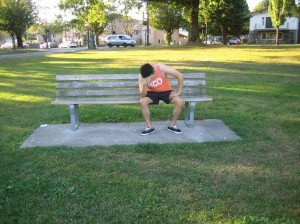Chickenpox or varicella is a virus which usually affects children. The condition is distinguished by its red-colored blisters that are itchy that occur all throughout the body. In the past, chickenpox was common that it was considered as a childhood rite of passage. When the chickenpox vaccine was introduced back in the mid-1990s, the cases caused by the chickenpox virus have drastically decreased.
The material posted on this page on chickenpox virus recognition and management in infants and children is for learning purposes only. To learn to manage injuries and illnesses with children and infants enrol in a babysitting or childcare first aid course today.
Causes of chickenpox
Chickenpox is caused by the varicella-zoster virus. Majority of cases occur via contact with an infected individual. The virus is contagious for several days before the blisters manifest and it stays contagious until all the blisters have crusted over. It is also spread though saliva, sneezing, coughing and contact with the blisters.
Who is at risk for chickenpox?
Individuals who are exposed to the virus as a result of an earlier infection, immunization or resistance handed from mother to infant are at lower risk. Those who are not exposed might contract the virus easily. The risk for the condition increases under these conditions:
- Recent contact with an infected individual
- Children below 12 years old
- Adults living with children
- Individuals who spent time in a school or childcare facility
- Immune system is compromised due to medications or illnesses
When to see a doctor
The clusters of red, fluid-filled blisters appear all over the body indicates that the condition is chickenpox, instead of another type of virus. These symptoms occur before or during the outbreak of the blisters.

- Fever
- Stomachache
- Sore throat
- Cough
- Headache
It is important to seek medical care if the individual starts to develop an unexplained rash, particularly if it is accompanied with fever or cold symptoms.
Providing relief to the symptoms
Majority of individuals who are diagnosed with chickenpox are instructed to rest while waiting for the virus to pass through the system. For parents, they should keep children out of school to prevent the spread of the virus. As for the infected adults, it is best that they stay at home in order to prevent spreading the virus to others.
Antihistamine topical ointments or medications are prescribed or bought over-the-counter in order to relieve the itchiness. In case the itchiness causes discomfort, these can help pacify the skin:
- Consistent application of odorless lotion
- Lukewarm baths
- Wearing soft and lightweight clothing
These can help relieve the itchiness especially for children who are more likely to scratch the blisters.
Dealing with high-risk individuals
Individuals who are suffering from the complications from the virus or those who are at risk for adverse effects are prescribed with antiviral medications. The high risk individuals are usually the elderly, young children or those who have underlying medical issues. These antiviral medications do not cure chickenpox but they make the symptoms less severe as well as making the body heal faster. The possible complications of chickenpox include skin infections and pneumonia. Take note that these can be easily treated at home using antibiotics. Hospitalization is only needed for severe cases.
